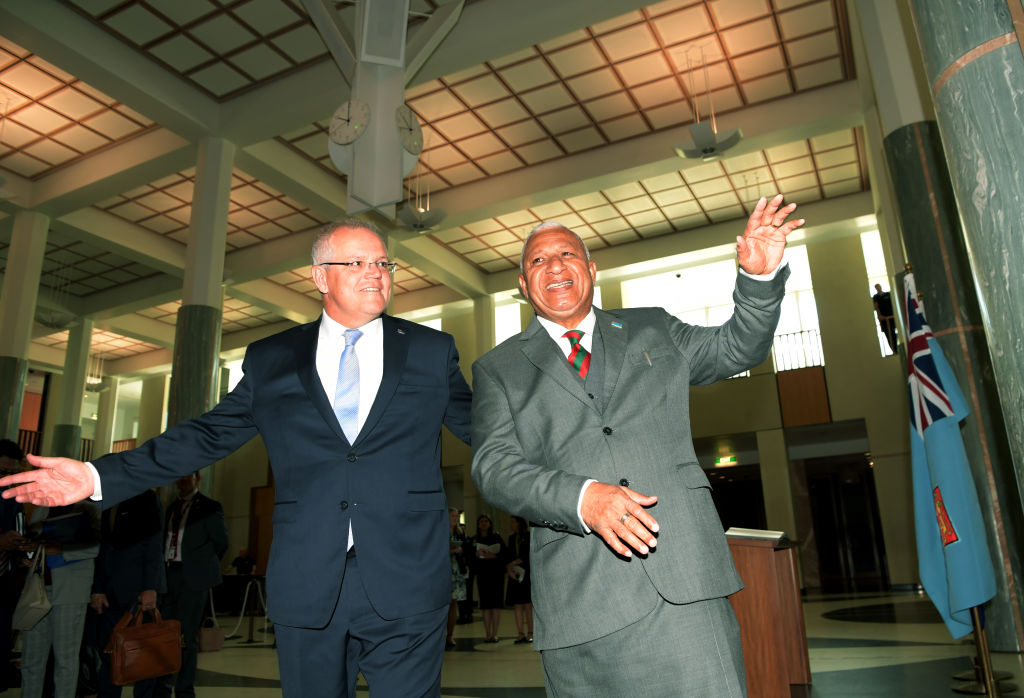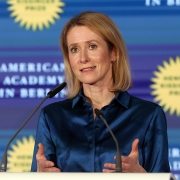A positive South Pacific vision

Covid-19 and China challenge Australia in the South Pacific.
Add in the category-five severe tropical cyclone that’s just pounded Solomon Islands, Vanuatu, Fiji and Tonga.
The pandemic and the aftermath of Cyclone Harold constitute the immediate crisis. China is the long-term test of power and governance in the islands.
From different directions, the issues of pandemic, cyclone and power ask Australia questions about its interests, influence and values in the South Pacific.
Dissimilar questions throw up a similar answer: Australia must put Pacific people at the centre of its South Pacific policy.
As my previous column argued, this simple statement sits atop much complexity. Embracing this seemingly obvious idea would open many new thoughts about the future place of Melanesians in Australia, alongside the traditional interests of Australia in Melanesia.
Put Pacific people at the centre of our policy by emphasising all the positives in the islands. Yep, plenty of positives! No Pacific lament here.
The peoples of the South Pacific—inhabiting an environment which can be as harsh as it is beautiful—constitute true nations. The island nations have clear identities of culture, language, ethnicity and history, offering much to admire and learn from.
The islands have strong societies—even though their states are weak—and made the smoothest transition from colony to independence of any region.
Without exception, South Pacific states have been able to transplant and grow Western democratic forms, a better collective record than anywhere else in the developing world. Fiji proves the power of the Pacific’s democratic norm by clawing its way back to elections from its military coups.
Pacific democracy is beset by ‘big man’ politics and corruption, but democracy reigns across the region—often rough, yet admirably robust. The next challenge is for Pacific women to get their share of political power.
Now consider the positives that are central to Pacific life. The islands are Christian with relatively conservative societies that are English-speaking, pro-Western and pro-capitalist. Apart from English as the lingua franca, the French territories of Polynesia, New Caledonia and the Loyalty Islands also tick those boxes.
The flippant version of all this is that Australia embraces the place everybody else in the world wants to visit on holiday. The lucky country lucks out again—we get to do institution-building in paradise.
The serious version is to add up all those positives: strong both societally and culturally, democratic, pro-Western and conservative.
No wonder Australia is the region’s status quo power. Scott Morrison’s inspired embrace of the ‘Pacific family’ is about shared values as well as Oz interests. Canberra’s job is to accentuate those Pacific positives, to work with what’s natural in the islands.
The six reviews and inquiries Australia is conducting on the South Pacific will build on long history and deep policy knowledge. And beyond the usual discussion of aid, defence, trade and investment, two of parliament’s inquiries are about Pacific people—the human rights of women and girls in the Pacific and strengthening relationships via the Pacific diaspora, ensuring the Oz step-up reflects ‘the priority needs of the governments and people of Pacific island countries’.
Australia, surely, is set to abandon the budget trajectory of the past five years that saw deep cuts in foreign assistance. Time to start pumping lots more money into aid, showcasing Canberra’s recent amazing ability for screeching policy turns, junking long-held views.
An aid U-turn and lots more bucks for the South Pacific is a big policy shift; yet the really hard part will be philosophy and focus. That is where putting Pacific people at the very heart of policy matters.
Australia has a proud history of helping the islands with health and education. Time to power up that history and do much, much more. More money. More focus. More people. The story Covid-19 is telling about island health systems has a sad parallel in education, especially in Melanesia.
The people dimension can drive Australian responses to the China challenge. Kevin Rudd is right to note, ‘If we want to be the partner of choice, we need to also acknowledge we are not the only choice of partner.’ China will have a big role. Our aim must be to work with the islands and key institutions to shape that role.
Canberra has dealt itself into China’s island game by creating the A$2 billion Australian Infrastructure Financing Facility for the Pacific, to be managed by the Office of the Pacific within the Department of Foreign Affairs and Trade. The high-priority list includes telecommunications, energy, transport, water and other essential infrastructure. There’s lots of room for China to play, though, with the region needing US$3.1 billion in investment each year to 2030.
Playing to our strengths and the values of Pacific people can write the script for playing with, not against, China. Important institutions can do much to shape that script: the Pacific Islands Forum, the Pacific Community, the Asian Development Bank and the World Bank.
An equation that says China does infrastructure while Australia serves Pacific people is a winner. Take heart from Richard Herr’s conclusion that ‘China’s current regional soft power lacks breadth and depth’.
The South Pacific positives lean towards Australia, not China. Time for Australia to lean in to help Pacific people.

